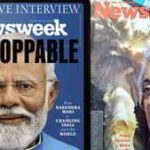1. “What kind of work environment do you like best?”
Maybe you love working alone … but if the job you’re interviewing for is in a call center, that answer will do you no good.
So take a step back and think about the job you’re applying for and the company’s culture (because every company has one, whether intentional or unintentional). If a flexible schedule is important to you, but the company doesn’t offer one, focus on something else. If you like constant direction and support and the company expects employees to self-manage, focus on something else.
Find ways to highlight how the company’s environment will work well for you — and if you can’t find ways, don’t take the job, because you’ll be miserable.
2. “Tell me about the toughest decision you had to make in the last six months.”
The goal of this question is to evaluate the candidate’s reasoning ability, problem-solving skills, judgment, and possibly even willingness to take intelligent risks.
Having no answer is a definite warning sign. Everyone makes tough decisions, regardless of their position. My daughter worked part-time as a server at a local restaurant and made difficult decisions all the time — like the best way to deal with a regular customer whose behavior constituted borderline harassment.
A good answer proves you can make a difficult analytical or reasoning-based decision — for example, wading through reams of data to determine the best solution to a problem.
A great answer proves you can make a difficult interpersonal decision, or better yet a difficult data-driven decision that includes interpersonal considerations and ramifications.
Making decisions based on data is important, but almost every decision has an impact on people as well. The best candidates naturally weigh all sides of an issue, not just the business or human side exclusively.
3. “What is your leadership style?”
This is a tough question to answer without dipping into platitudes. Try sharing leadership examples instead. Say, “The best way for me to answer that is to give you a few examples of leadership challenges I’ve faced,” and then share situations where you dealt with a problem, motivated a team, worked through a crisis. Explain what you did and that will give the interviewer a great sense of how you lead.
And, of course, it lets you highlight a few of your successes.
4. “Tell me about a time you disagreed with a decision. What did you do?”
No one agrees with every decision. Disagreements are fine; it’s what you do when you disagree that matters. (We all know people who love to have the “meeting after the meeting,” where they’ve supported a decision in the meeting but they then go out and undermine it.)
Show that you were professional. Show that you raised your concerns in a productive way. If you have an example that proves you can effect change, great — and if you don’t, show that you can support a decision even though you think it’s wrong (as long as it’s not unethical, immoral, etc.).
Every company wants employees willing to be honest and forthright, to share concerns and issues … but to also get behind a decision and support it as if they agreed, even if they didn’t.
5. “Tell me how you think other people would describe you.”
I hate this question. It’s a total throwaway. But I did ask it once, and got an answer I really liked.
“I think people would say that what you see is what you get,” the candidate said. “If I say I will do something, I do it. If I say I will help, I help. I’m not sure that everyone likes me, but they all know they can count on what I say and how hard I work.”
Can’t beat that.
6. “What can we expect from you in your first three months?”
Ideally the answer to this should come from the employer: They should have plans and expectations for you.
But if you’re asked, use this general framework:
You’ll work hard to determine how your job creates value — you won’t just stay busy, you’ll stay busy doing the right things.
You’ll learn how to serve all your constituents — your boss, your employees, your peers, your customers, and your suppliers and vendors.
You’ll focus on doing what you do best — you’ll be hired because you bring certain skills, and you’ll apply those skills to make things happen.
You’ll make a difference — with customers, with other employees, to bring enthusiasm and focus and a sense of commitment and teamwork.
Then just layer in specifics that are applicable to you and the job.
7. “What do you like to do outside of work?”
Many companies feel cultural fit is extremely important, and they use outside interests as a way to determine how you will fit into a team.
Even so, don’t be tempted to fib and claim to enjoy hobbies you don’t. Focus on activities that indicate some sort of growth: skills you’re trying to learn, goals you’re trying to accomplish. Weave those in with personal details. For example, “I’m raising a family, so a lot of my time is focused on that, but I’m using my commute time to learn Spanish.”
8. “What was your salary in your last job?”
This is a tough one. You want to be open and honest, but frankly, some companies ask the question as the opening move in salary negotiations.
Try an approach recommended by Liz Ryan. When asked, say, “I’m focusing on jobs in the $50K range. Is this position in that range?” (Frankly, you should already know — but this is a good way to deflect.)
Maybe the interviewer will answer; maybe she won’t. If she presses you for an answer, you’ll have to decide whether you want to share or demur. Ultimately your answer won’t matter too much, because you’ll either accept the salary offered or you won’t, depending on what you think is fair.
9. “What questions do you have for me?”
Don’t waste this opportunity. Ask smart questions, not just as a way to show you’re a great candidate but also to see if the company is a good fit for you — after all, you’re being interviewed, but you’re also interviewing the company.
10. “What do you expect me to accomplish in the first 90 days?”
If you weren’t asked this question, ask it yourself. Why? Great candidates want to hit the ground running. They don’t want to spend weeks or months “getting to know the organization.” They don’t want to spend huge chunks of time in orientation, in training, or in the futile pursuit of getting their feet wet.
They want to make a difference — and they want to make that difference right now.














